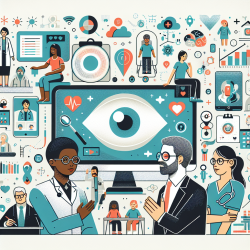As a practitioner in the field of online therapy, staying updated with the latest research and implementing evidence-based strategies can significantly improve patient outcomes. A recent study titled Improving education and coping of scoliosis patients undergoing surgery, and their families, using e-health offers valuable insights into how e-health strategies can enhance patient education and coping mechanisms.
Key Findings from the Research
The study involved 74 patients and 71 parents, all of whom had access to a comprehensive, evidence-based scoliosis website. The primary goal was to evaluate how this online resource could improve their knowledge of scoliosis and coping strategies. Here are some of the key findings:
- Both patients and parents showed a significant improvement in their knowledge of scoliosis after using the website (p=0.001 for patients and p=0.003 for parents).
- Patients were more likely to use relaxation and family problem-solving as coping mechanisms post-website access (p=0.02 and p=0.09, respectively).
- Despite increased knowledge, there was minimal impact on coping and perceptions of social support, indicating that knowledge alone may not be sufficient to improve these areas.
Implications for Online Therapy Practitioners
Based on these findings, here are some actionable steps you can take to enhance your online therapy practice:
- Incorporate Evidence-Based Resources: Ensure that the educational materials you provide are evidence-based and comprehensive. This will help improve your patients' understanding of their condition, which can reduce anxiety and decisional conflict.
- Focus on Coping Mechanisms: While increased knowledge is beneficial, it is equally important to provide tools and strategies for coping. Encourage patients to use relaxation techniques and family problem-solving as part of their therapy.
- Offer Continuous Support: The study found that over half of the patients indicated a need for more social support. Make sure to provide ongoing support and consider integrating interactive elements such as forums or chat features where patients can share their experiences and receive advice.
Encouraging Further Research
The study also highlights the need for further research to explore additional strategies that can enhance coping mechanisms and social support. As a practitioner, you can contribute to this field by:
- Conducting Your Own Research: Use your practice as a case study to gather data on what works and what doesn't. Share your findings with the broader community to help improve online therapy practices.
- Collaborating with Researchers: Partner with academic institutions or research organizations to conduct more comprehensive studies. This can provide more robust data and potentially lead to new, effective strategies.
To read the original research paper, please follow this link: Improving education and coping of scoliosis patients undergoing surgery, and their families, using e-health.










